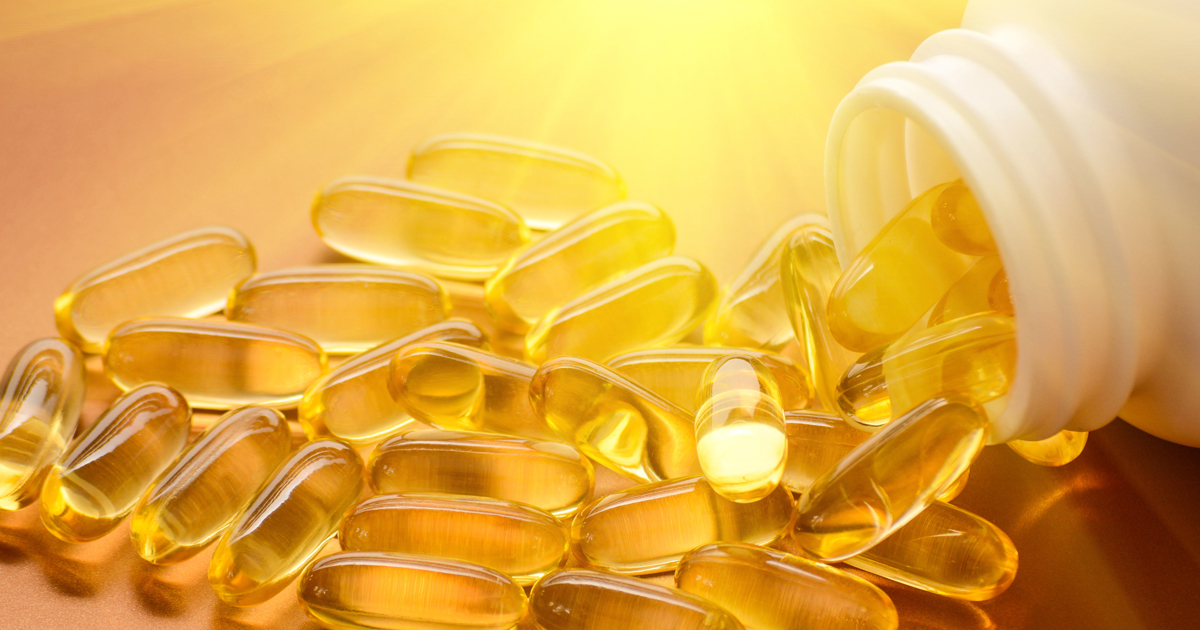
The summer months typically bring plenty of sunshine and, with it, plenty of opportunities for the body to make vitamin D. At least that’s what many people believe. In reality, it’s hard for most people to get an adequate amount of vitamin D each day, which is important because the body needs the nutrient to absorb calcium and promote bone health. In fact, vitamin D deficiency is a widespread problem around the world, according to a 2015 National Institutes of Health article. That may be because the vitamin isn’t available naturally in most foods, or because getting what you need from the sun, its main natural source, may require overexposure to harmful ultraviolet rays that damage the skin. For many cancer patients, it’s even harder to get enough vitamin D because treatments for the disease may cause the skin to be extra sensitive to sun damage. The concern is compounded because vitamin D’s benefits are especially important for many cancer patients.
“Vitamins, in general, are natural compounds that aid several body functions, including metabolism, nerve function and skin health. Vitamin D, in particular, helps provide immune support, bone strength and blood-calcium regulation,” says Issam Alawin, MD, Medical Oncologist at our hospital in Tulsa. Cancer patients who get the recommended dose of vitamin D during treatment lower their risk of osteoporosis and bone fractures, especially if their treatment regimen includes certain therapies, like steroids or hormone blocks, Dr. Alawin says.
Getting adequate amounts
And yet it isn’t always easy to get an adequate amount. Naturally occurring vitamin D sources are limited. Some people assume they can get the vitamin from the foods they eat, but the truth is very few foods have enough of it to qualify as a sufficient source. Dairy products usually contain more vitamin D than other foods, but even cow’s milk, which has 400 international units of vitamin D per quart, doesn’t have enough when you consider the daily recommended intake for most people is 600 international units, says Matt Rinehart, MS, RD, CSO, LD, who leads the Clinical Oncology Dietitian team at our hospital in Tulsa. The sun is our main natural vitamin D source, but it comes with the risk of skin damage. “Unless you’re an avid milk drinker and get a fair amount of sunlight every day, you’re probably coming up short on your vitamin D needs,” Rinehart says.
Vitamin D deficiency is even harder to combat for cancer patients who experience fatigue and other challenging side effects of cancer treatment. “Because of their side effects, many cancer patients would prefer to be at home,” Dr. Alawin says. “They may be too tired to be active outside, or they may feel cold because of anemia and want to stay covered up indoors.”
Many oncologists also recommend that patients stay out of the sun to avoid skin reactions that may result from treatment. Photosensitivity, for example, is often caused by certain treatments, such as radiation therapy, photodynamic therapy and chemotherapy medications like methotrexate (Folex®, Mexate®), a drug commonly used to treat leukemia and lymphoma, and fluorouracil (Efudex®, Adrucil®), a drug commonly used to treat colon cancer. The effects of photosensitivity may range from mild redness or small pigmented spots to blistering or painful skin peeling. “In all of these cases, vitamin D dietary supplements are recommended,” Dr. Alawin says.
Vitamin D tests recommended
It’s a good idea for cancer patients to have their vitamin D levels tested as soon as they receive a cancer diagnosis, during treatment and on a regular basis after treatment ends, Rinehart says. If patients’ levels are below the recommended values, their doctor or dietitian may recommend a supplement. But it’s important to understand which supplements are safe and appropriate—and to know that these vitamins should be taken with food.
Vitamin D is a fat-soluble vitamin, meaning it dissolves in fats and oils digested with food and won’t dissolve as well if taken alone. “We see a lot of patients who come in on a vitamin D supplement already, but because no one’s educated them on the fact that the nutrient is fat soluble, they’re not fully benefiting from it because they’re not taking it with a meal,” Rinehart says. But being fat soluble also means vitamin D may build up in the blood if you take too much, which means that taking a dose higher than what your doctor or dietitian recommends may cause toxicity. “That’s why frequent testing and monitoring are so important,” Rinehart says.
Experts agree that more research is needed to fully understand vitamin D's impact on the body. Before taking any supplements, talk to your care team about whether they are appropriate for you and whether they may interfere with your treatment.



